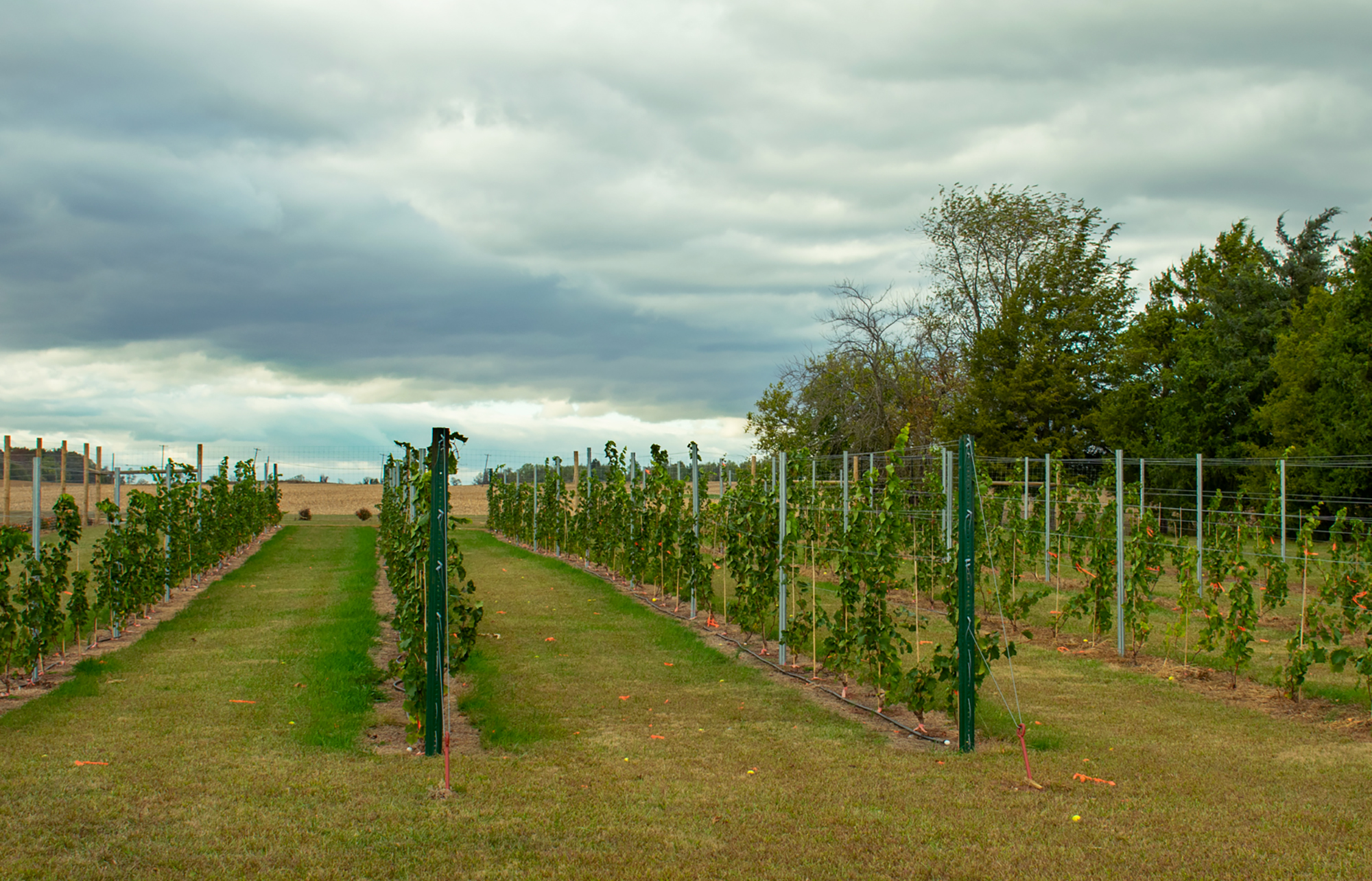There’s a quarter-acre of grapevines growing on the grounds of a Montgomery County golf course, thanks in part to a University of Maryland researcher.
Last spring, through a partnership between the University of Maryland Extension and the Montgomery County Revenue Authority, the Poolesville Golf Course became home to a vineyard. Now, its creators are transforming the new addition into a space that students studying agriculture can use to learn about the wine industry.
Joseph Fiola, a viticulture and small fruit specialist at this university, has been working on the project for about seven years. He thinks the new facilities will help to fill a gap in both Maryland’s workforce development and the education of students hoping to enter the industry.
“We will have students of all ages going to learn how to grow grapes out in that vineyard, getting their hands-on experience,” he said.
[Read more: Beer The Turtle: One UMD researcher’s mission to grow hops in Maryland]
The vineyard occupies a space on the Poolesville property that wasn’t being used for the course, said Keith Miller, the Montgomery County Revenue Authority’s CEO. It sits on a slightly-raised acre of land just beyond the driving range, Fiola said.
Students from this university’s applied agriculture institute or a local community college, as well as those earning a certification or, eventually, a bachelor’s degree in fermentation science, will be able to work on the vineyard, Fiola said.
The project also includes building an event space and a custom crush facility — a place where people who grow grapes can bring their own to make custom batches of wine — Miller said. Both structures are set to break ground in the spring, he said.
People used to crush the grapes with their feet, said Jon Lobenstine, director of agronomy at the Montgomery County Revenue Authority, but it’s much more sanitary now.
Fiola said people are often drawn to the fermentation field because it comes with a community, direct retail interactions and self-processing that might not come with other agriculture jobs. A fermentation science degree — which would teach wine and beer making, among other skills — is in the works, Fiola said, and he hopes there will be a course on the basics next fall. He plans to develop the vineyard over the next four years.
“You’re still working the earth, but at the same time you’re producing a product and you get to work in a nice industry,” Fiola said. “People enjoy wine. There’s a huge social aspect to it.”
[Read more: Takoma Park gas station becomes the first in the country to go all-electric]
The project’s creators hope to benefit people outside of this university as well. Maryland’s wine industry is currently having trouble filling positions with qualified people, Lobenstine said. He’s hopeful the new educational facility will help to combat that issue.
“It’s such a booming industry right now,” Miller said. “There’s a lot of opportunities from the economic development standpoint.”
The project also focuses on supporting the local wine industry, Miller said, and providing opportunities to develop the state’s workforce. And with more than 80 wineries in Maryland, a tourist can make a day out of the industry by visiting multiple establishments, Fiola said. A vineyard “becomes a destination,” he added — something not just for those interested in growing grapes, but for anyone looking to spend a day outside.
Overall, though a vineyard-golf course combination may seem odd, Fiola said he’s excited for the opportunities the project could present.
“I think our biggest pest is going to be these little fluorescent, green, round things that may be flying in to the vineyard,” he said.



